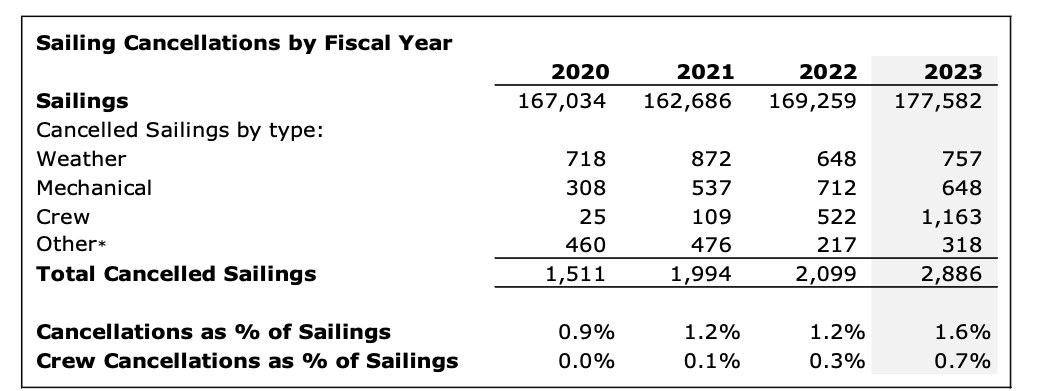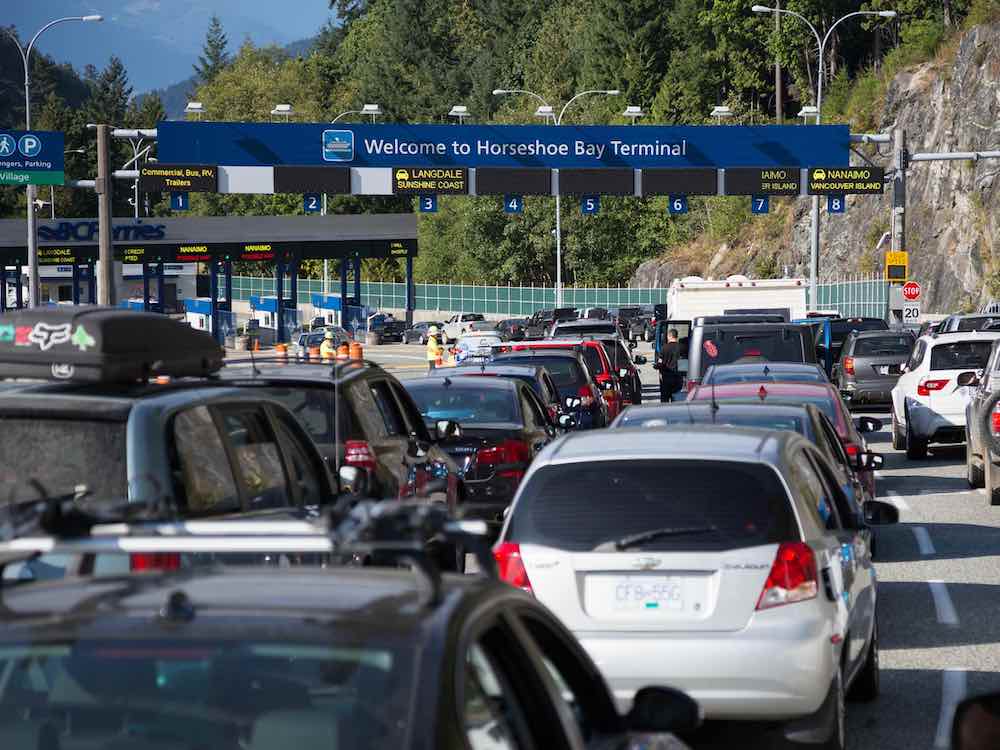A four-letter expletive ended talks aimed at bringing peace between BC Ferries and its union — and better service for travellers.
It was Nov. 28, and union leader Eric McNeely had just logged in to a video conference call with two company executives.
The stakes were high. The company and the union had accused each other of intransigence and lying in a series of memos to employees.
The meeting ended badly.
McNeely said he left the call after Dean Dobrinsky, the corporation’s executive director of labour relations, told him and another union official to “just shut the fuck up.”
And with that the labour dispute escalated.
For months, BC Ferries and the BC Ferry and Marine Workers' Union had tried to negotiate a wage hike they both agreed was needed to end an exodus of staff.
But instead of reaching a deal, the rift has widened. Union memos have dropped F-bombs of their own and compared company executives to the Grinch. The company has blamed the union for the holdup, infuriating workers desperate for raises.
The union, which represents nearly 5,000 full- and part-time workers, recently filed legal action against the company, including a $2.1-million claim to the BC Labour Relations Board. That complaint accuses the company of negotiating with workers behind the union’s back and of defaming the union through communications with employees.
The union has since launched a public campaign, saying management are “lining their own pockets” while workers face “low wages, poor treatment and severe understaffing.”
McNeely said those problems are the root cause of increased ferry delays and cancellations that have plagued passengers.
The Tyee interviewed three BC Ferries employees for this story, none of whom wanted their names to be published because they feared repercussions. All said they are frustrated with the long hours as they work overtime because of staff shortages. And all complained of low pay, which has fallen behind industry standards as the cost of living rises.
Workers blamed both the company and the union for those issues. McNeely said some workers have even floated the idea of trying to leave the union entirely.
“There are people who certainly blame me, and some of the communications I get would not be fit to publish,” McNeely said. “The angst is real.”
The Tyee reached out multiple times to BC Ferries for this story. A company spokesperson said they could not answer many of The Tyee’s questions because of the legal complaints filed by the union.
The Tyee reached out again, asking the company to verify specific claims made by the union and workers, and also contacted Dobrinsky to ask if McNeely had accurately conveyed what happened at the Nov. 28 meeting.
A BC Ferries communications staffer responded to both inquiries, saying the company had nothing further to say.
In a provided statement, BC Ferries CEO Nicolas Jimenez said his goal was to “deliver a good outcome for our people.”
The future of the wage hike is now in the hands of a three-person arbitration panel, who must make a binding decision on how big a raise ferry workers should get. They are expected to next meet in February.
“We’re looking forward to the arbitration panel’s decision in the new year and expect it’ll deliver wage improvements that reflect how important our people are to BC Ferries,” Jimenez wrote.
McNeely said the dispute has left many of the union’s members unable to pay basic bills.
“People are having a real hard time being able to afford to work at BC Ferries, or being able to say no to more competitive operators,” McNeely said. “There’s people who have been hanging out on tenterhooks to get a wage increase so they can afford to live.”
‘It can only be described as a crisis’
At the start of 2020, Graeme Johnston was getting ready to go into bargaining with BC Ferries as the then provincial president of the BC Ferry and Marine Workers' Union.
He had reasons to be confident. Ridership was up. Revenues had risen 2.2 per cent to $940 million in the previous year.
“Everything that was going on suggested there was going to be significant sums of money at play and potentially available,” said Johnston. His members tasked the union with securing significant general and special wage hikes, he said, the kind of increases workers at the company hadn’t seen in more than a decade. The B.C. government owns all the non-voting shares in BC Ferries. One voting share is held by the BC Ferry Authority, which is expected to operate the service.
Even if the company refused, Johnston believed a win was likely. Since 2003, BC Ferries workers have not legally been allowed to go on strike.
Instead, if the parties can’t reach a deal, the issue goes to arbitration. Based on the company’s numbers and cost-of-living increases, Johnston expected arbitrators would side with the union.
“The conditions looked absolutely prime to go to a third party because the conditions looked very sympathetic,” Johnston said.
Then the COVID-19 pandemic began.
The company’s earnings and ridership plummeted as officials urged the public to stay home. A 2021 company report to the BC Ferries commissioner found passenger traffic declined almost 40 per cent compared with the prior year. The company had also briefly tried to lay off hundreds of staff — something an arbitrator later determined was not allowed. No one knew exactly how long the chaos would last.
Suddenly, going before that third-party panel wasn’t appealing.
Instead, the union and company brokered a five-year agreement that included no wage increase for 2021 and increases of just two per cent in 2022 and 2023. They also negotiated wage reopeners in 2024 and 2025 — essentially, agreeing to negotiate those wages later.
“Both the union and employer recognized the situation we were facing was incredibly unique and uncertain,” Johnston said. The agreement passed with more than 60 per cent of members voting in support.
Still, Johnston said, no one was thrilled about the deal. He said lingering anger over it was one of the reasons he didn’t run again for the union leadership in 2021.
“The prospect of it all was, it was a bitter pill to swallow, but one we had to take,” Johnston said.
Neither party imagined how fast ridership would return — or how rapidly inflation would set in.
In its 2023 fiscal report, the company reported foot passenger traffic was just three per cent lower than it had been prior to the pandemic. In June, BC Ferries reported record-high passenger traffic for that month.
At the same time, the world got a lot more expensive. The consumer price index in B.C. rose 7.8 per cent in 2022 alone.
That meant BC Ferries employees, who were seeing their wages increase by only four per cent over three years, were effectively taking a pay cut.
Johnston said no one could have foreseen how fast things would change.
“We didn’t have a crystal ball. But it’s a fair thing to say the timing of the agreement was a miss,” Johnston said.
There were other changes, too. BC Ferries got a new CEO and a new executive director of labour relations.
They — and McNeely — inherited a group of workers who were angry the company had tried to lay some of them off when the pandemic began.
“It was a terrible decision, ethically and strategically,” Johnston said.
“People are barely able to make ends meet,” reads a document submitted by the union to the labour board this month. “It has led to anger and frustration among the Union’s members. It can only be described as a crisis.”
The company’s priority became persuading staff to stay. In a March brief to the BC Ferries commissioner, the company said it had noted a 52 per cent increase in turnover among all employees and an even sharper increase among staff who hold specialized licences.
The rate of unscheduled absences increased from 5.7 per cent in May 2019 to 8.5 per cent in November 2022, due mostly to sick leave. BC Ferries staff worked nearly 350,000 hours of overtime between November 2021 and November 2022, well above pre-pandemic rates.
McNeely said an internal union survey found about half of approximately 2,000 surveyed workers reported working a second job.
McNeely shared survey results with The Tyee, including anonymized anecdotes from members. Some related that they were homeless or facing homelessness because of rising rents. “People are coasting, barely coping. I have seen signs of potential suicidal language. I worry about my co-workers,” one person wrote. Another wrote, “Morale is at an all-time low because it feels like there’s nothing to live for.”
The result, in some cases, has been cancelled ferry service and a furious public. In its 2023 fiscal year report, BC Ferries said 2,886 sailings had been cancelled, or roughly 1.6 per cent of all trips. Those trips can be cancelled for a range of reasons including bad weather or needed maintenance. But in roughly 40 per cent of cases, the issue was cited as crew shortages.

The company ramped up hiring. But in a March 2023 report, it noted many of its offers were being declined.
There is a global shortage of trained mariners, and the job market to hire them is fiercely competitive. Dhaval Shah, associate dean of the BC Institute of Technology Marine Campus, said many companies are hiring new sailors directly from the school, hoping to replace an aging workforce.
“There is a huge demand. If you started a career, you would not have to worry about getting a job,” Shah said. He added that this is particularly true for specialized positions like engineers, who require years of training and on-deck experience to become certified.
That competition means the salaries offered by BC Ferries sometimes don’t stack up.
According to one BC Ferries report, a licensed deckhand at Seaspan, a private company, was making more than 29 per cent more than someone with the same job at BC Ferries. Other positions also lagged behind in terms of pay.
The light at the end of the tunnel was the 2024 wage reopener. In an unusual turn of events, the company and union were eager to boost worker wages. They agreed to start renegotiating those wages in August, eight months ahead of schedule. They also decided to start paying out that new wage in October.
But when the company and the union came to the table in August, they couldn’t come to a deal.
An arbitration panel was convened in October. It was slated to meet for five days, but one was cancelled because a participant was sick. In the end, they could not finish in time and had to adjourn until February.
That left union members with months before a pay increase would come.
And soon, the negotiations would become public in a way that would make coming back to the table that much harder.
‘Bargaining advice by the Grinch’
On Nov. 23, BC Ferries chief people officer Cameron Brine wrote a letter to all BC Ferries staff.
In the letter, a copy of which was obtained by The Tyee, Brine acknowledged wages had fallen behind inflation. He said the company had tabled a “best and final offer” in August that would have been the company’s biggest wage hike since 1982. But, Brine wrote, the union had rejected it.
“The union offer was substantially higher than ours, placing many roles well above market and putting it beyond the reach of what we could afford based on our regulated price caps, which drive our budgets. In the end, they did not agree to our ‘best and final’ offer,” Brine wrote.
The same day, the union fired back, accusing the company of lying. “This behaviour makes us feel there is no hope for the relationship and trust has broken to a level of irreparability,” the memo said. It further said that “Saint Nicolas is being provided bargaining advice by the Grinch” — an apparent reference to Nicolas Jimenez, CEO of BC Ferries.
The union’s memo also used harsh language in response to a detail Brine provided about meal allowances. “FUCK OFF, we need to eat at home as well,” the union bulletin said. “Pay the wages we deserve and bring stability to a faltering ferry system under the new management team.”
Pay was not the only issue. The union and company had also clashed about housing allowances offered to some workers in remote parts of B.C. during the COVID-19 pandemic, when vessels had to be cleared for extra cleaning.
The union claimed the company had quietly kept offering such bonuses to a small number of its members, which the union argued was a case of bargaining directly with workers. The issue went to an arbitration panel, and the company later revoked the benefit entirely.
That led to the Nov. 28 meeting, where McNeely said Dobrinsky hurled an expletive at him and another union official.
Within hours, Brine sent out another memo, containing more information about the company’s proposal. Brine said the company had offered members a base increase of seven per cent, with more to come for specialized positions. Brine said deckhands, for example, would have gotten a 15 per cent pay boost.
That drew another furious reply from the union.
“As a result of their actions, including unfair labour practices, violations of signed protocol agreements, contempt of court and bargaining in bad faith, we are pursuing legal action through multiple channels,” the Nov. 29 memo said.
On Dec. 14, a lawyer for the union filed an unfair labour complaint to the BC Labour Relations Board. In it, the union accuses BC Ferries of intentionally trying to drive a wedge between it and its membership. The union argued that by sending details of bargaining directly to members, the company also violated an agreement between the parties to not publicly share that information.
The union is seeking $2.1 million in damages, including $1 million in defamation, which would be the most the labour board has ever awarded a party in such a case.
The board has not made a ruling on the matter, and the company has not yet filed its response or shared how it will respond to the complaint.
Despite that, McNeely still thinks there is a path to a deal without relying on arbitrators.
“I think we’re probably closer than some people may think we are. It’s about the value of the proposal and then how it’s structured,” McNeely said.
He said his goal was not to immediately reach parity with the wages offered by Seaspan but the union wanted wages that were competitive with private companies.
“Let’s be honest, it’s not something BC Ferries can address in one wage adjustment. That’s a mountain that’s too high,” McNeely said.
But McNeely has another problem: his own membership. He said some ferry employees blame him for the holdup in negotiations.
Some have even discussed holding votes, he said, to leave the union. He believes this is a direct result and goal of the company’s communications with his members.
The B.C. government says it is not getting involved.
“In this case, there is currently a collective agreement in place, and we continue to respect the process guided by that agreement,” said Labour Minister Harry Bains.
The union’s recent public campaign blames working conditions at the company for the delays and cancellations faced by riders.
“If my membership isn’t stable, the ferry system is not stable,” McNeely said. ![]()
Read more: Rights + Justice, Transportation, Labour + Industry

















Tyee Commenting Guidelines
Comments that violate guidelines risk being deleted, and violations may result in a temporary or permanent user ban. Maintain the spirit of good conversation to stay in the discussion and be patient with moderators. Comments are reviewed regularly but not in real time.
Do:
Do not: